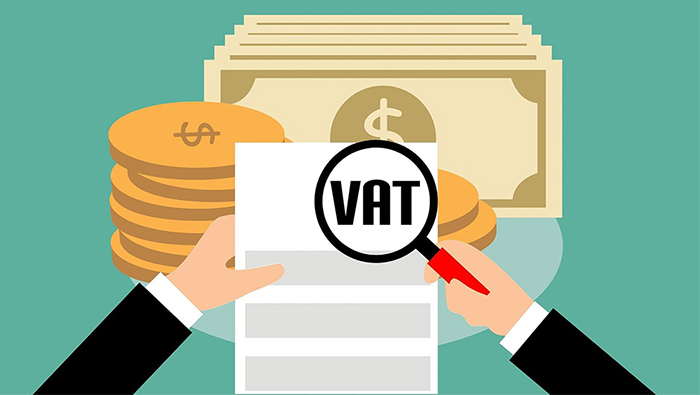
Muscat: The Tax Authority has issued Decision No. 456 of 2022, amending certain provisions of the Oman VAT Executive Regulations (Executive Regulations), these amendments aim to harmonise the controls related to some tax policies, such as the controls for exempting financial services and determining the place of supply of wireless communications services, in a manner that is in line with international best practices related to value added tax.
The amendments also included the addition of some provisions related to the application of the electronic tax invoicing system, which is proposed to be implemented in the Sultanate of Oman during the next few years, provided that the Tax Authority issues the necessary executive decisions to implement this system, including the obligations of taxpayers regarding this system and the dates and mechanisms of application.
The amendments included provisions related to tax refunds to foreign governments, diplomatic, consular and military bodies and missions, their heads and members accredited to the Sultanate of Oman. The amendments authorise the tax authority to determine the conditions and controls for tax refunds in coordination with the Ministry of Foreign Affairs, in a manner that is in line with the Sultanate’s obligations regarding the international agreements regulating this matter.
The following are details of the most important provisions of this decision:
1. Place of supply of telecommunication services:
The decision referred to the amendment of the text of Article (28) of the Executive Regulations related to determining the place of supply of telecommunication services. The country from which the electronic chip used by the customer is issued, instead of being subject to it at the place of use and actual enjoyment of the service as stated in the provisions of the executive regulations before the amendment.
2. Controls for exempting financial services from tax:
The Executive Regulations issued pursuant to Tax Authority Decision No. (53/2021) stipulated that financial services provided by banks and financial institutions licensed by the Central Bank of Oman or Any of the competent authorities in which it is established to conduct banking business are exempted from tax in the application of the provision of Clause (1) of Article (47) of the Law.
The amendments to the provisions of this article come with the exemption of the origin of the financial service exempted under the law, regardless of whether or not its provider is licensed by the competent authorities. This applies, for example, to financial services provided by business sectors (companies) other than financial institutions in the event that they provide financial services. Exempt such as selling shares of its shares or providing loans to affiliated companies or other financial facilities that are exempt from tax.
3 Determining the deadlines for issuing the tax invoice:
The decision included amending the provisions of Article (143) of the Executive Regulations, by adding a text indicating that the tax invoice must be issued no later than 15 days from the date of making the taxable supply or making the assumed supply (which is made between related persons) or receiving the consideration - In whole or in part - before the date of supply.
The amendment also included Articles (146) and (150) of the Regulations in a manner that requires the issuance of the simplified tax invoice within (15) days as well, and that the summary tax invoice (issued from supplies made within one month) must be issued within (15) days of the end of the month.
The provisions of Article (202) of the regulation were also amended by adding the violation of not issuing the tax invoice in accordance with the requirements and the specified period to the violations for which the head of the Tax Authority may impose an administrative fine of no less than OMR500, and not more than OMR5000.
4. Provisions related to the application of the electronic tax invoicing system:
A definition of the electronic tax invoice has been added to the first article of the regulation related to tariffs, as it is defined as a tax invoice issued in an electronic format organised through an electronic means, and this invoice must include, at a minimum, the information specified in this regulation and any other information specified by the Tax Authority.
The amendment included the provisions of Article (143) of the Regulation, where the amendment stipulated that the tax invoice must be issued in an approved electronic format in the cases specified by the Tax Authority, provided that the Tax Authority determines the additional requirements for issuing electronic invoices and the data that it must include.
5. Amending the articles related to refunding tax paid by foreign governments, diplomatic, consular and military bodies and missions, international organisations, heads and members of diplomatic and consular authorities accredited to the Sultanate of Oman:
In accordance with the obligations of the Sultanate of Oman towards international agreements regulating tax exemptions and exceptions granted to diplomatic and consular bodies and missions, international organisations and their heads and members, Articles (188) and (189) of the Regulations have been amended, in a manner that gives the tax authority flexibility in determining and amending the conditions, controls and procedures related to tax refund to this category, in coordination with the Ministry of Foreign Affairs and the Ministry of Finance.
The Tax Authority will issue decisions regulating tax refunds based on setting limits and ceilings for tax refunds, with the principle of reciprocity prevailing if Omani missions and their members obtain advantages and limits higher than what is permitted in the Sultanate of Oman.